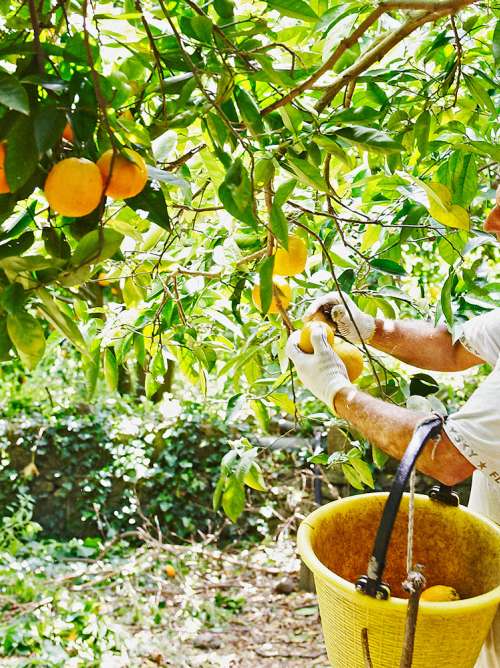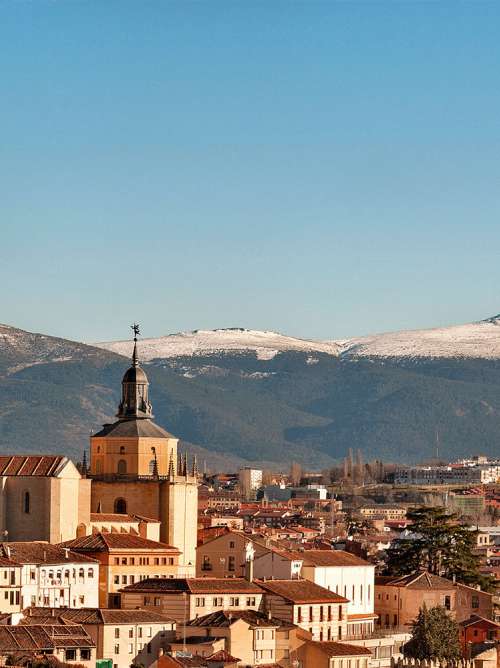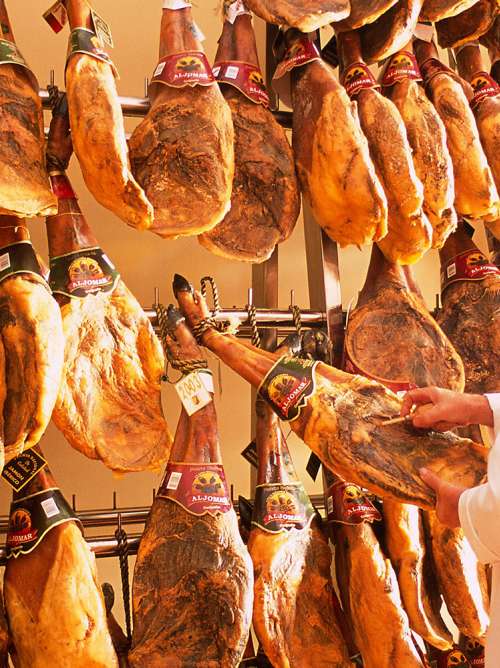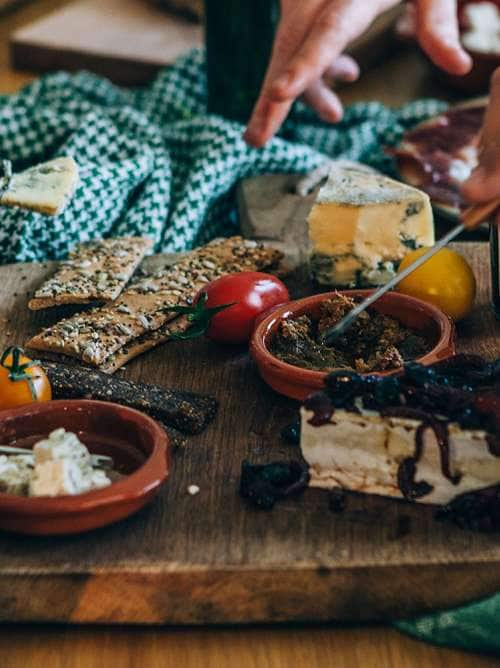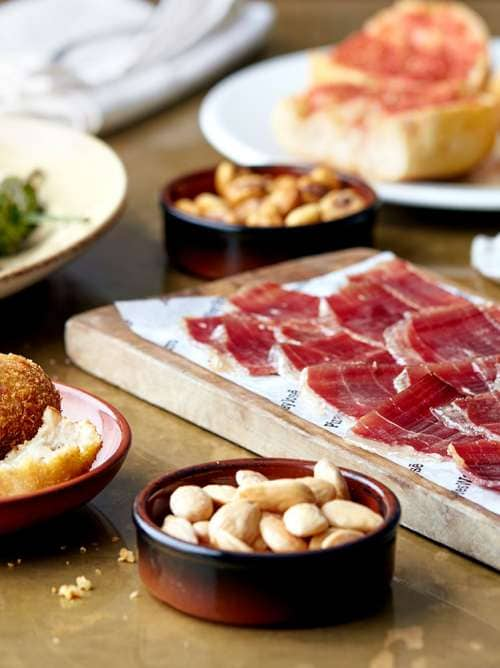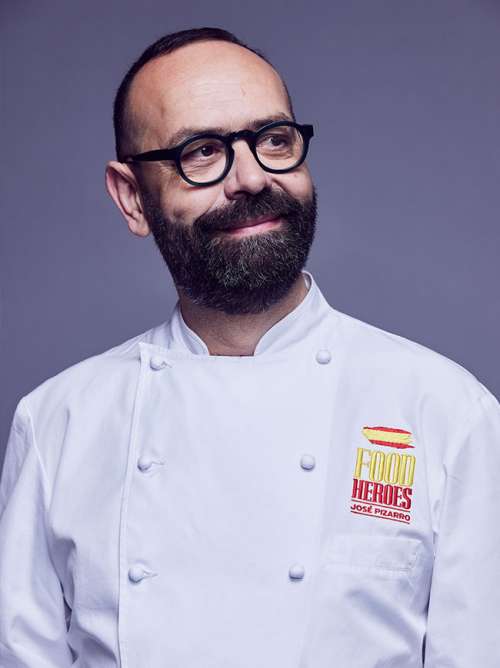Q&A with José Pizarro
Originally from Cáceres, Spain, José grew up on a farm being inspired by the scents emanating from his mother and grandmother’s kitchens. His glittering career has seen him work in some of the finest Spanish restaurants in Madrid and London, including Eyre Brothers and Brindisa. As well as owning four successful restaurants in London and a gastropub in Surrey, José has recently opened up Iris Zahara in Andalusia – where he offers exclusive culinary experiences. He is a regular on cookery programmes, the food festival scene and has written five cook books. His passion for fresh, simple, seasonal ingredients showcases the best of Spanish cuisine.
How has Spain’s history influenced its cuisine?
Invasions and conquests have had huge influence on Spain’s traditions and customs over the centuries. Our fishing and farming history goes way back to the Celts and the Iberians. The Romans introduced viniculture and the Visigoths introduced brewing. Perhaps most important was the arrival of the Arabs and Berbers, who brought with them new ingredients from different parts of the world, like Persia and India: spinach, artichokes, aubergines, carrots, rice, apricots and citrus, as well as spices such as cinnamon, cardamom, cumin and saffron. They introduced irrigation ditches, cisterns and draining systems, which improved food production, and brought cooking techniques such as pickling to the region. They also changed Spanish desserts by bringing sugarcane and teaching the Spanish how to refine it.
The discovery of the Americas resulted in more important additions to Spanish food. Products from the New World immediately became integrated into the Spanish diet: tomatoes, vanilla, chocolate, beans and potatoes.
It’s funny, but the foods we consider to be ‘typically Spanish’ would either not exist or be very different without the influence of so many other cultures.
What role does Spain’s culture play in its cuisine?
It is impossible to understand Spain without understanding its food. Food for us is a source of pride, a way to live; it is central to our identity.
Each region of Spain has its own strong identity. There’s a gastronomic competition within the country – dishes are named after the region, and we believe that nobody cooks those dishes better than in the place where they come from. For example, in Castilla, you’ll have Castilian soup made with garlic and bread; pisto, the Manchegan vegetable stew eaten with fried eggs; the outstanding Galician octopus, lightly poached and served with olive oil and paprika; gazpacho in Andalucía; paella in Valencia; fabada in Asturias; cocido (stew) from Madrid.
Religion has played an important part in gastronomy. For example, there were a number of fish dishes especially prepared for Lent and Sundays, which gave way to a vast variety of fish and shellfish dishes, legume stews and all manner of desserts made without any animal fat. The Jewish religion also left its mark. For example, during Shabbat it is forbidden to cook, which is how we’ve ended up with slow-cooking stews that incorporate dried vegetables (mainly chickpeas and beans) and seasonal vegetables (cabbages, spinach and Swiss chard). This way, the food could be cooked the night before.
What are some key ingredients in Spanish cuisine and why are they important?
Spanish olive oil has to be the most important – Spain is the largest producer of olive oil in the world. I really care about olive oil because I know how difficult and how amazing it is to produce – my dad taught me to pick olives in winter. Today, I produce my own olive oil with a friend so I know how much goes on behind the scenes. I’ll be using it in virtually all of the tapas dishes I’ll be creating for The Glass House on Iona.
Pimentón de la Vera (smoked paprika) is another. We produce it in Murcia and Extremadura, where I’m from, and I grew up with that smoky flavour. It transforms how food tastes in a very delicate way. We use it in stews, salads, as a marinade, as the basis of chorizo – so many things. I also love saffron – it’s delicate and succulent.
Ibérico pork is also very important. When I cooked fresh Ibérico pork in London for the first time 19 years ago, everyone told me I was crazy. But now, it so popular that you can buy it in Waitrose. I’m so excited to be able to bring it to guests at The Glass House on Iona, too – I know they’ll love it.
Can you tell us more about the importance of meat in Spanish cuisine?
For me, as a Spaniard, meat is part of my culture. The Spanish are hunters, and meat is the basis of our culture. I grew up with lamb and pork (both of which will feature on my menu for Iona). I think it’s important for people to know where their meat comes from. I respect food and farmers so much because I know how difficult it is to produce meat and cheese. Jamon Ibérico takes two years to rear. The pigs feed on acorns and walk many kilometres across the dehesas (fields) each day.
What did food mean to you growing up?
I grew up on a farm and my mum was always helping my dad, from very early until very late. She was always cooking incredible food – breakfast, lunch and dinner. But I was never allowed to be in the kitchen. Ever. My mum would say, ‘Sorry, my son, go away from here, I don’t have space for you’. Bless her. So it wasn’t the opportunity to be cooking with my mum or grandmother that inspired me – they didn’t have the time – but all the flavours, all the aromas, all the love they put in the food. Thank God for that. That is what I do in my restaurant and at home, and what I want to do with P&O Cruises. I want to see my customers as my friends. It’s all about the flavour, and all about discovering something new. That’s what inspires me.
How has Spanish cuisine evolved in the UK in the 20 years you’ve been here, and where do you see it heading next?
When I came to London, there were Spanish restaurants around, but people didn’t understand the basis of Spanish food. You need to explain the flavour to people, the provenance behind everything. I think we need to understand the basis of something before we can explore it in depth. Now, everyone is interested in Spanish food and culture and it’s been an amazing journey. There are so many wonderful Spanish restaurants and I’m happy to be part of that, and happy that people understand sharing is caring. I’m hoping to bring that ethos to the P&O Cruises experience, too – it’s about more than just food.
Going forward, I think there will be more focus on regionality. Not just Spanish food, but food from Galicia, from Valencia. Customers want to know more and more about the culture. Spain is 17 countries in one. The north is completely different to the south, Cádiz completely different to Galicia, Galicia completely different to the Basque Country, the Basque Country completely different to Catalunya, different to Madrid, to Extremadura.
Why do you think people enjoy tapas so much?
They bring people together. When you go out, tapas allow you to enjoy food and wine and company, and to talk. Food brings culture to the table. Customers want to know what’s behind every single thing. When I go to a restaurant, I want to learn something. If I go out and don’t learn something, for me the meal is not complete. This is something I really want to accomplish with my P&O Cruises menus. I want guests to have an incredible holiday and embrace an amazing part of Spanish culture.
What did food mean to you growing up?
I grew up on a farm and my mum was always helping my dad, from very early until very late. She was always cooking incredible food – breakfast, lunch and dinner. But I was never allowed to be in the kitchen. Ever. My mum would say, ‘Sorry, my son, go away from here, I don’t have space for you’. Bless her. So it wasn’t the opportunity to be cooking with my mum or grandmother that inspired me – they didn’t have the time – but all the flavours, all the aromas, all the love they put in the food. Thank God for that. That is what I do in my restaurant and at home, and what I want to do with P&O Cruises. I want to see my customers as my friends. It’s all about the flavour, and all about discovering something new. That’s what inspires me.
Can you tell us more about the menu you’ve created for P&O Cruises?
It will definitely be big on Spanish flavours. Croquetas, jamón Ibérico, some kind of carpaccio. I also hope to do an amazing sauce – I’m thinking mojo from the Canary Islands.
What are you hoping to bring to P&O Cruises guests through your Glass House menu?
I want to transport guests to the region they’re cruising around. To say ‘wow’, to feel the happiness that comes with enjoying amazing wine and food together. I want people to have a great time, drink wonderful wines and eat incredible food. I want the flavour to transport them to Spain. When they come back home and they smell or taste something that reminds them of that holiday, I want them to think, ‘wow, what an amazing time I had’.
